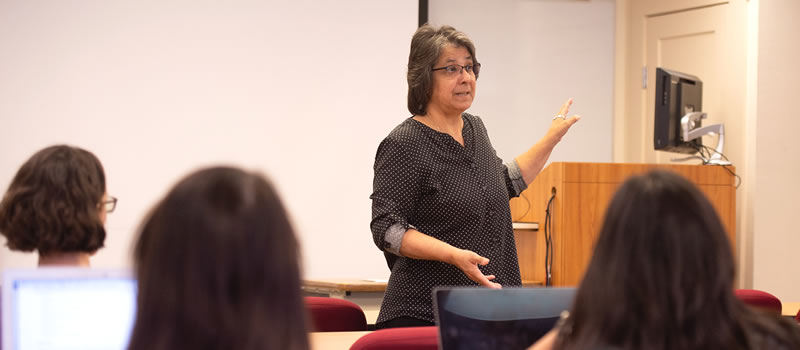School Psychology

Get started on your Journey
The Our Lady of the Lake University (OLLU) Master of Science in Psychology with a concentration in School Psychology prepares practitioners to provide a variety of services including assessment, counseling, crisis management and intervention to children and adolescents. School Psychologists work with students, families, administrators, and community providers to create safe, supportive learning environments. School Psychologists focus on using the most effective strategies to support individual student needs.
- School Psychologists work with students through counseling, assessing barriers to learning and determining appropriate instructional strategies.
- School Psychologists work with students and their families to identify issues that may affect academic performance, assist in determining eligibility for special programs, teach parenting skills and enhance home-school collaboration
- School Psychologists work with teachers to design and implement progress monitoring systems, academic and behavioral interventions, support individualized instruction, and create positive classroom environments and motivate students to engage in learning.
- School Psychologists work with administrators to collect and analyze data in reference to school improvement, implement school wide intervention and mental health programs and promote school policies and practices that ensure safety of all students.
- School Psychologists work with community providers to coordinate service delivery in and outside of school.
Certificate Programs
The Psychology Department offers two optional certificate programs for students in the School Psychology program:
Psychological Services for Spanish Speaking Populations (PSSSP) certificate
The Psychology Department offers the Psychological Services for Spanish Speaking Populations (PSSSP) certificate. The goal of the PSSSP certificate is to produce mental health practitioners who are equally competent to provide services in English and Spanish. Core courses are taught in Spanish or bilingually and students have the option of taking a language or cultural immersion course taught in a Spanish-speaking country. PSSSP students will also receive supervision in Spanish of their practicum work with Spanish speaking clients.
Assessment Specialty in Autism Certificate
The Assessment Specialty in Autism Certificate program focuses on assessment and behavior interventions for students with Autism. It is an optional certificate for students in the MS Psychology School Psychology concentration. Students will be able to finish their degree program and Autism certificate program in three years if they take 12 semester hours in two of their nine semesters of coursework.
Degree plans and course descriptions
- Master of Science in Psychology - School Psychology concentration
- Psychological Services for Spanish Speaking Populations (PSSSP) Certificate-School Psychology Concentration
- Assessment Specialty in Autism Certificate
Licensure
The School Psychology program meets the academic requirements for licensure as a Licensed Specialist in School Psychology (LSSP) or Licensed Psychological Associate (LPA) through the Texas State Board of Examiners of Psychologists. The LSSP is required to provide school psychological services in Texas public schools. The requirements for the LSSP credential include completion of a graduate degree in school psychology or closely related field, a passing score on the national exam for school psychology and eligibility for certification as a National Certified School Psychologist (NCSP) or educational equivalent. In Texas, the title of School Psychologist is limited to those licensed psychologists with a doctorate in school psychology. With a few additional courses and practicum hours, students also meet the requirements for licensure as a Licensed Practicing Counselor (LPC).
Program Design
Courses in the School Psychology program are offered in the evening. The 66-credit hour program can be completed in three years for a student attending classes full time during the fall, spring and summer semesters.
Practicum
Students in the School Psychology program take a part-time practicum for one semester and a full-time internship for two semesters, which consist to site-based field training in an educational setting or a child service center. Students participate in various professional activities assigned to school psychology practitioners under the direction and supervision of qualified, on-site professionals. The activities focus on skill application and students work directly with children, adolescents, parents and school personnel. Placements are arranged and coordinated by school psychology faculty to provide experiences that meet state practicum and internship requirements.
Students are urged to become Student Members of the National Association of School Psychologists (NASP) and the Texas Association of School Psychologists (TASP).